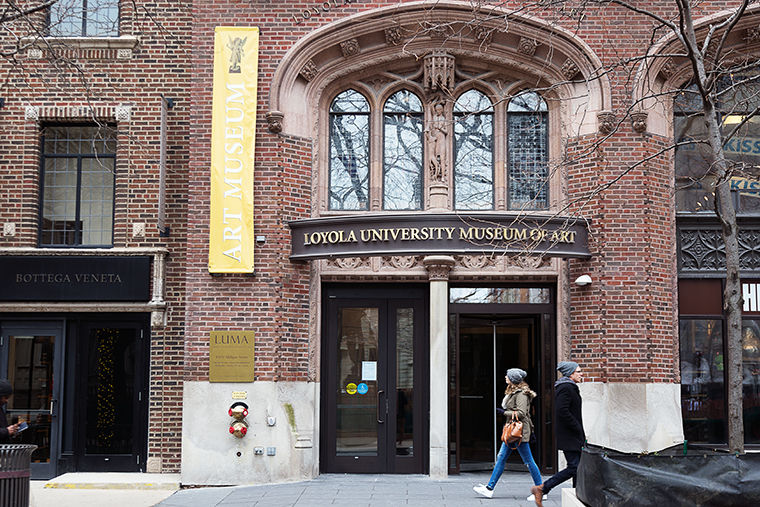Exhibit aims to empower sex trafficking survivors
The Loyola University Museum of Art is the 11th stop of the sex trafficking exhibit, sponsored by Girls Educational & Mentoring Services, a nonprofit organization in New York that helps sex trafficking victims.
February 1, 2016
A traveling exhibit sharing the stories of female sex trafficking survivors is scheduled to run at the Loyola University Museum of Art from Feb. 6 through March 19. It will highlight victims who have positively changed their lives and their communities.
The exhibit, called “More than a Survivor: More than a Story,” originated in New York as a project of Girls Educational & Mentoring Services, the only organization in the state serving girls and young women who have experienced commercial sexual abuse and domestic trafficking. According to a GEMS representative, the exhibit is intended to present survivors in an honest and empowering light.
“A lot of the stories being put out there are very focused on [dramatic] stories and experiences that are important to highlight,” a GEMS representative said. “But at the same time, it doesn’t really move the movement forward.”
The representative said the exhibit’s mission is to depict survivors as active members of their community who, more than being victims, have made positive differences. Marian Hatcher, a Loyola University Chicago alumna featured in the exhibit, became nationally-known as a survivor after she left jail 12 years ago and rebuilt her life. She is the human trafficking coordinator in the Office of Policy in the Cook County Sheriff’s Office and is also a member of GEMS.
Hatcher said she is looking forward to the exhibit’s opening and excited that the Cook County Sheriff is introducing the show on its opening night at the Loyola museum. Hatcher and survivor Shamere McKenzie, also a Loyola alumna, will speak on their experiences at the reception.
“Shamere is my adoptive spiritual mentee-daughter,” Hatcher said of McKenzie.
Hatcher and McKenzie join 20 other women featured in the show through portraits and testimonies, coming from all over the country. The GEMS representative said each woman brings her own story to the table, but they are all positive and meant to be supportive.
McKenzie said her portion of the exhibit is aligned with Sun Gate Foundation, an independent anti-trafficking organization that gives educational opportunities to all survivors of human trafficking.
“I strongly believe education is an avenue of hope,” she said, also the CEO of the organization. “That’s what people need to know—although atrocities have happened, there is hope.”
She said the exhibit started in 2014 and has traveled to places such as Arizona, Oregon, Georgia and Washington D.C.
Pam Ambrose, director of the Loyola Museum of Art, said in a Jan. 27 emailed statement that it is important for LUMA to display stories about individuals who have moved forward from a traumatic experience and are successfully building their careers.
“Sex trafficking is a worldwide problem and often Americans are not aware of how prevalent sex trafficking is in the United States,” Ambrose said. “This exhibition serves also as a visual ‘thank you’ for the efforts from our own Cook County Sheriff’s Office to curtail sex trafficking in the Chicago area.”








